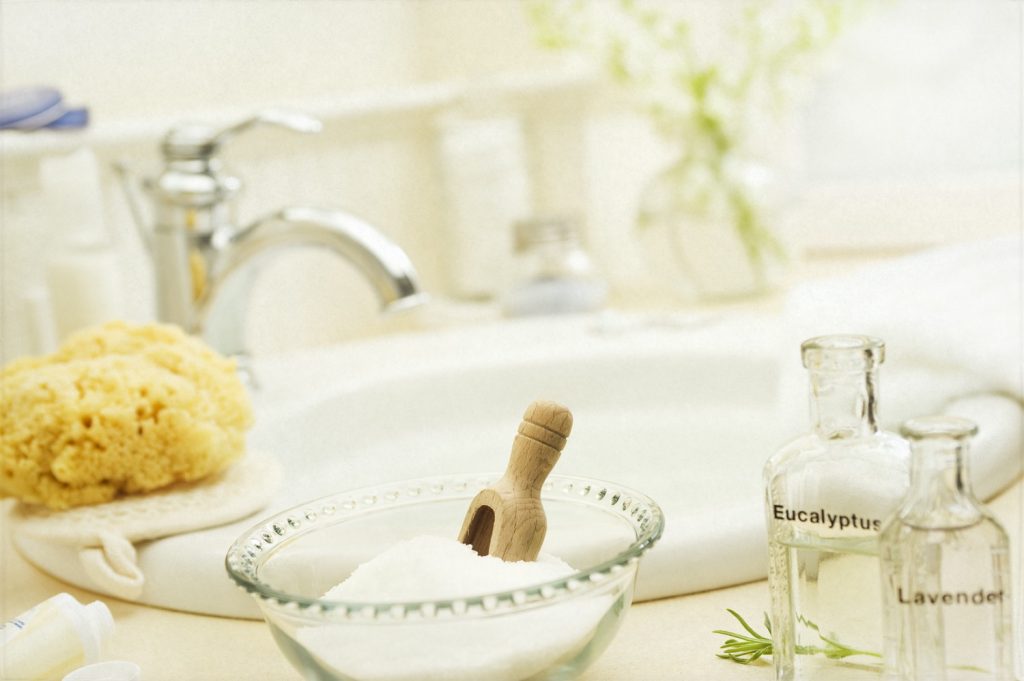Every season of the year tends to bring high stress periods. Whether it be approaching deadlines, changing temperatures, organizing trips, holiday parties, weddings, birthdays, back to school, final exams, we all have those times when we are pushed to the limits. When everything seems like it is just around the corner and the stress is building up, there is just not enough hours in the day to keep up.
Nevertheless, there are a few natural methods you can use to take care and get you through these stressful times.
1. Take an adaptogen, such as Rhodiola rosea
Not necessarily sedatives (some may be), adaptogens tend to increase well-being in situations where people are overly stressed or worried. Rhodiola rosea is the second most popular adaptogenic herb after Panax ginseng. It promotes physical/cognitive vitality and appears to be proven for reducing fatigue and exhaustion in prolonged stressful situations. It is also neuroprotective and promotes longevity in some studies. Find the research here.

2. Take a hot epsom salt and lavender bath before bed
Schedule 20 minutes in the evening to do this. Epsom Salt is MgSO4 (Magnesium Sulphate), and both the magnesium & sulphate absorb through your skin at a very good rate. Add in lavender essential oil for an even more relaxing effect. This is good for two reasons: 1) it relaxes the shoulder muscles from constant sitting and straining and 2) it helps wind down before sleep. Which brings us to…
3. Make sure you sleep
We hear about getting more of it all the time. However this one can’t be skipped. Sleep – especially deep REM sleep – is when regeneration of tissues, memories and immunity are built. If you are constantly depriving sleep, you will simply not perform when the time to perform comes. Make sure your room is pitch black by unplugging everything that glows and fully shutting out any window light.
4. Exercise
Please read the book “Spark”. In a very convincing way, it shows that exercise is essential for brain power and memory retention with antistress and antidepressant effects. It also help you achieve better sleep. This book has a ton of research showing this. If short on time, it is best to do high power, high intensity cardio type of exercise. If anything, do jumping jacks, squats or skip rope. Anything that will get your heart rate going will lower your stress levels by helping your body metabolize cortisol, the stress hormone as well as decrease secretions of adrenaline and noradrenaline to make you feel more calm.
4. Consider taking L-Theanine
L-theanine is an amino acid that is one of the active ingredients in green tea. It promotes relaxation without causing drowsiness. Early research shows that it also helps enhance performance during times of stress by helping a person’s ability to switch attention between different tasks. Find the research here.
5. Take magnesium
Almost everyone is short on magnesium and it is involved in over 300 reactions in your body – so you can bet that you need to up your magnesium intake during stressful times. It is also great for muscle relaxation. You can start taking 150mg per day and work your way up. The “citrate” form will give you looser stools at higher doses, while the “bisglycinate” form will not and is better absorbed. You may also try the Raspberry-Lemon flavour of the “Calm” brand as a hot tea before bed.
6. Eat a balanced diet
The more your body has to handle, the more it relies on what you feed it. Stress increases nutritional needs so poor food choices can compound the problem. Choose to nourish your body with wholesome food. Busy times require planning. Plan out regular mealtimes and map out a week’s worth of meals. There are a ton of resources on the internet for meal planning. Make sure to include a lot of fruits and vegetables, whole grains like brown rice, and keep your protein at a good level with lean meats, skinless poultry, fish, beans and legumes. Eat a lot of healthy fats found in olive oil, coconut oil, nuts, seeds and avocados. Avoid sweet snacks, they will ultimately add to your stress and lower your immunity. Sugar is actually the root of a lot of illnesses. They predispose you to low blood sugar which can mimic stress and looks like irritability, shaking and apprehension. For this reason, sugar should be avoided by anyone prone to anxiety or under a great deal of pressure. Also avoid salty foods which can deplete potassium, a mineral necessary for proper nerve conduction.
7. Castor oil pack
Many people when stressed, tend to get a little backed up if you know what I mean. To keep things moving, you can place a warm castor oil pack externally over the liver – just below the ribs on the right side of the torso – for at least half hour in the evening. Usually the effects come on right away or the morning after. Taking magnesium as mentioned above will also soften stool but this method works more on your liver. The liver is your detoxification organ so if there is anything clogging up any of your other organs, it might help to do this liver boosting treatment.
8. Have a little fun
This is the easiest way to reduce your stress level. This can take on many forms. This can be as simple as dancing around to a crazy good songs on Youtube or Spotify. It is so common for adults to forget to have fun and laugh. Schedule in some fun like you schedule your meetings.
9. Meditate
Mindfulness practice or meditation will make you aware of your racing thoughts and the sensations that those thoughts bring to your body. In becoming aware, the goal is to be more directive with your attention and responsive, not reactive, to your thoughts. Meditation allows you to identify, observe and master your emotions. You allow your thoughts to be there while letting go of the reaction to them: the negative sensations. It may be tense muscles, high blood pressure, bad posture and shallow breathing. Meditation practices can be counting, knitting, reciting mantras, breathing, practicing mindfulness, and positive self talk. There are great meditation apps (Calm, Buddhify, Headspace, Simple Habit) out there that can guide you through meditation. Allow just 3 minutes a day to quietly breathe deeply through the abdomen.
This article is for educational purposes only and does not advocate self-diagnosis. Due to individual variability, consultation with a licensed health professional, such as a naturopathic physician is highly recommended prior to starting a natural treatment plan.

0 Comments Leave a comment